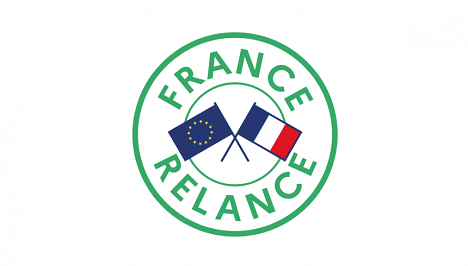On September 3rd, 2020, the French prime minister presented the plan “France Relance”, a recovery plan focused on the economic, social and ecological rebuilding of the country. In total, 100 billion euros [118 billion USD] have been set aside for this purpose. 1.2 billion euros [1.4 billion USD] should go to the agricultural and agri-food sectors in order to reach 3 objectives: strengthening food sovereignty, accelerating agro-ecological transition and adapting agriculture and forestry to climate change.

Food sovereignty
364 million euros [431 million USD]
Farmers are needed first and foremost in order to ensure the French production. Given that 50% of farm managers are going to retire in the next 10 years, a public campaign will be launched in order to promote agricultural and agri-food jobs and training. France will also take other measures to reduce its dependence to other countries. In order to reduce the import of proteins for livestock feed, the government will invest 100 million euros [118 million USD] in protein plants. French slaughterhouses and livestock farms will also be modernized.
Agro-ecological transition - Production means
346 million euros [409 million USD]
For many French farmers, agro-ecological transition has been an important topic for many years. The recovery plan aims to accelerate this transition. The government will invest in organic conversion and the HEV certification, in new agricultural equipment, as well as in biodiversity around the crops by planting hedgerows.
Agro-ecological transition - Food
200 million euros [237 million USD]
The objective of the recovery plan is for the entire population to have access to healthy, sustainable and local food. Therefore, the plan targets all places of consumption, both outside and inside the home. School canteens in small municipalities will be supported to offer fresh and local meals. Additionally, 1,000 restaurants located in rural municipalities will be helped to adapt and develop sustainable catering activities. In order to promote the consumption of local products, Territorial Food Projects (TFP) plays an important role. The objective is to have at least one TFP per department within two years.
To support the access to healthy, sustainable and local products for the most modest households, the “Shared gardens” initiative will accelerate their development. In the same perspective, the “Fresh basket” operation will support the actors committed to developing the access to local products for the most modest and isolated households.
Adapting to climate change
300 million euros [355 million USD]
The Ministry of Food and Agriculture emphasized the fact that the multiplication of weather events is a reminder of the urgency to adapt French agriculture and forestry to climate change. In order to support farmers, the government is offering to help with the investments to protect against hail or frost. As for the drought, farmers will be accompanied as well, for resource management in particular. The search for seeds that are more resistant to drought will also be supported. Finally, the plan includes a major reforestation scheme for French forests as well.
Besides the measures mentioned above, the political decision-makers insist that the agricultural, food and forestry sectors will benefit from additional measures backed by the government. Among others: relocating the industrial production over the territory, strengthening the equity capital of small/medium-sized enterprises and ETIs, investing in future technologies, training young people in strategic and promising sectors, strengthening the skills of the workforce and transforming professional training.










